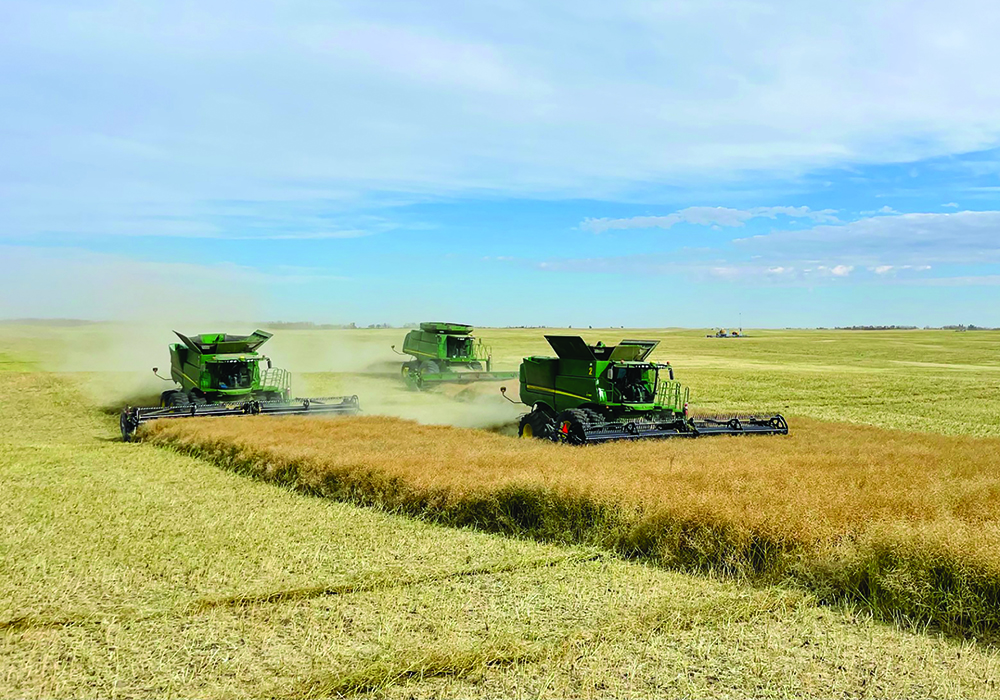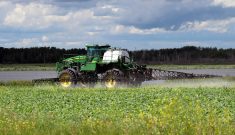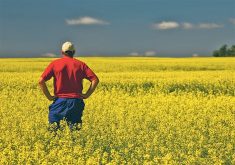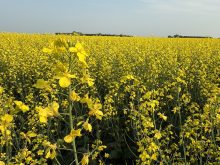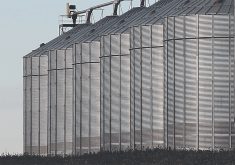Another day, another issue for canola growers to tackle.
From the federal government’s musing on reducing emissions from fertilizer use to trade matters to carbon pricing, policy dominates much of the work carried out by farmer organizations.
The most recent concern surrounds amendments made in the Senate to Bill C-234 that removed barns and greenhouses from the potential exemption to carbon pricing.
Other stories in the 2023 Canola Yearbook:
- Decent yields in dry times
- Canola views – photo essay
- Canola growing season in review
- Spraying in dry times can be tricky
- Flying the fields
- Hormone imbalance suspected for malformed racemes
- Incorporating resistant traits weighs on yields
- Production briefs
- Pest roundup: Canola pests kept in check by dry conditions
- Disease roundup: Verticillium has breakout year
- Canola news briefs
- What happens when the big crop comes?
- Bids tumble but canola demand is firm
Read Also

Powdery mildew can be combine fire risk
Dust from powdery mildew can cause fires in combines.
The bill sought exemptions from the carbon tax on natural gas and propane used for grain drying and heating and cooling of barns and greenhouses. It went to the Senate agriculture committee after scrutiny in the House of Commons standing agriculture committee and all-party support. There, a Liberal senator introduced an amendment to remove barns and greenhouses from the bill, arguing that heat pumps could do the job.
The outcry from the agriculture industry has been loud.
Dave Carey is the Canadian Canola Growers Association vice-president of government and industry relations and co-chairs the Agriculture Carbon Alliance.
“This amendment dramatically changes the scope and intent of the bill and will cost farmers thousands of dollars, which could instead be used to invest in the sustainability of their operations,” said Carey in a CCGA news release. “Farmers are on the front line of food production and they currently do not have any viable alternatives for natural gas and propane used in drying grain or heating and cooling barns.”
The Senate rejected the amendments Nov. 7. The original bill was awaiting third reading as this book went to press.
The Senate is also discussing C-282, which would amend the Department of Foreign Affairs, Trade and Development Act to protect supply-managed industries and keep them out of future trade negotiations.
Farm groups representing export commodities such as canola say that the bill is bad policy.
On March 22, CCGA chair Roger Chevraux and chief executive officer Rick White spoke to the bill at the standing committee on international trade.
“First, if passed, Canada’s attractiveness as a free trade agreement partner would diminish, which would adversely affect Canada’s ability to launch and enter into new negotiations,” said Chevraux at that meeting.
“Second, the bill would constrain negotiators’ ability to seek the best and most ambitious deal for Canada as a whole.
“Third, the bill creates a dangerous precedent that invites our trade partners to also seek exclusions and undermines Canada’s reputation globally.”
The bill passed in the Commons, however, and as this book was going to press, was before the Senate.
In May, the standing committee on international trade studied non-tariff trade barriers in existing and potential trade agreements.
Chris Davison, then the vice-president of stakeholder and industry relations at the Canola Council of Canada and now CEO, outlined how sanitary and phytosanitary measures can affect trade.
He said the pandemic had caused countries to heighten protectionist measures.
“As international trade has increased, countries have become more concerned about protecting their domestic agriculture production. At the same time, consumers are concerned about practices and exporting countries that they perceive are affecting food safety,” said Davison. “As a result governments are adopting measures designed to address the food safety concerns and fears of constituents, some of which may not be grounded in science. Moving away from science-based measures generates greater trade unpredictability.”
The list of policy interventions is long and varied, from pre-budget consultations, to the proposed Sustainable Agriculture Strategy, to asking for action on port strikes.
Many are ongoing and will continue into 2024.
CCGA has expressed its support for a recently introduced bill by standing agriculture committee chair and Liberal MP Kody Blois.
Bill C-359 seeks to amend the Feeds Act, the Seeds Act and the Pest Control Products Act on provisional registration and approval.
Blois said the amendments would allow science from trusted trading partners to be used in Canada through a 90-day provisional registration.
Second reading has not yet been scheduled.
Contact karen.briere@producer.com




